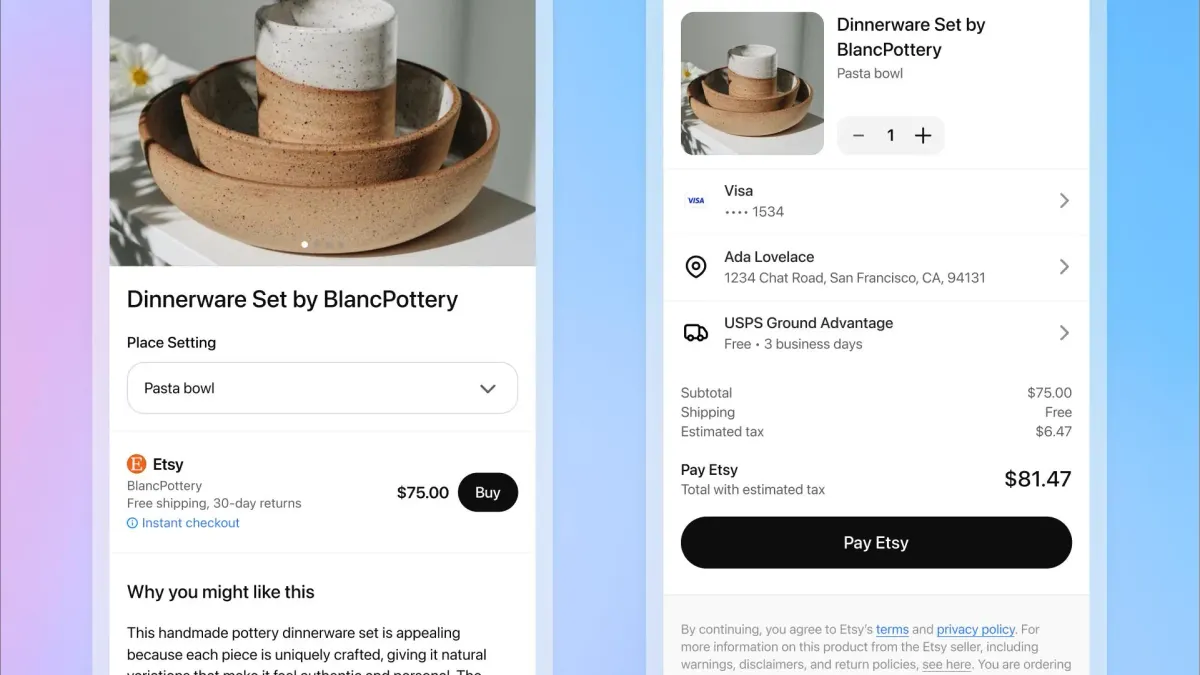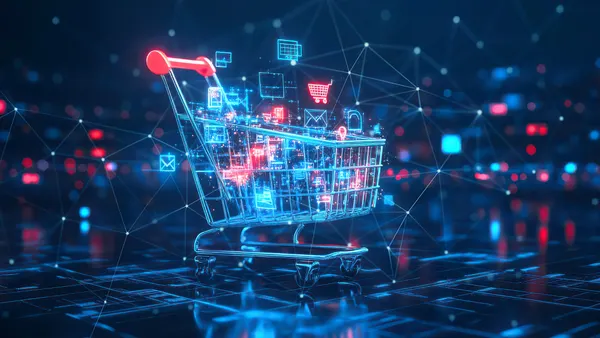As consumers turn to AI for shopping recommendations, OpenAI just announced a function that aims to keep the buying process on its ChatGPT platform.
The company on Monday debuted Instant Checkout for U.S. ChatGPT Plus, Pro and Free users. Such users can now buy directly in the platform from U.S. Etsy sellers and will soon have the same option for over a million Shopify merchants (including Glossier, Skims, Spanx and Vuori).
"As a marketplace of over 5 million creative entrepreneurs, it’s our job to remove barriers for shoppers so they can easily discover and be delighted by our sellers’ special items," Etsy Chief Product and Technology Officer Rafe Colburn said in a separate company post.
The Instant Checkout functionality currently supports single-item purchases, but OpenAI plans to add multi-item carts as an option and expand the service to additional regions.
Merchants pay a fee on purchases, though the service does not come at an additional cost to ChatGPT users, and items with Instant Checkout are not preferred in product results, per OpenAI. However, the tech company said in its announcement that it does consider several factors — such as the enablement of Instant Checkout, quality and price — when ranking merchants that sell the same product.
The new feature is powered by the Agentic Commerce Protocol, which the technology company says was built with Stripe and other partners. In addition to this initial Instant Checkout rollout, OpenAI has open-sourced its Agenetic Commerce Protocol for merchants to start building their own integrations. Businesses can then apply to have their products available to buy through ChatGPT.
"OpenAI is taking its first big step into commerce with Instant Checkout,” Emarketer senior analyst Zak Stambor said in emailed comments. “The feature still has some wrinkles to iron out, but embedding checkout for hundreds of millions of users could turn ChatGPT into a true commerce destination. If OpenAI can streamline the experience, it could challenge Amazon and Google and carve out a lucrative new revenue stream."
The news from OpenAI comes as shoppers turn to AI to ask for product suggestions on anything from everyday essentials to holiday gifts. The impact means that some consumers are shifting away from the search engines retailers have long focused on and changing the nature of their searches to be more complex, even directly on a company’s e-commerce site.
GEO, or generative engine optimization, is the future of SEO, Target’s Vice President of Digital Product Management Ranjeet Bhosale told an audience at ShopTalk Fall 2025 earlier this month.
“It’s not just about giving them the right products. It’s also about how you showcase the product,” Bhosale said. “When they are searching for a summer party, rather than just showcasing tableware they are expecting us to now show party supplies, grilled meat, even sunscreen, and show the breadth of assortment that Target carries in a meaningful fashion.”















